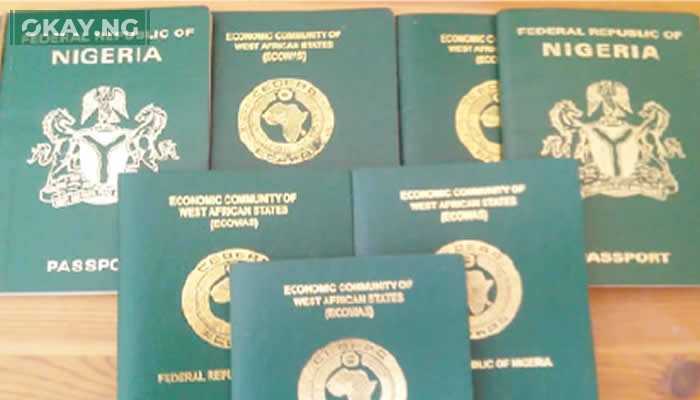The Federal Government has explained the recent adjustment of Nigerian passport fees, stressing that the move is designed to protect the integrity of the travel document, improve service delivery, and eliminate corruption in the application process.
According to the Nigeria Immigration Service (NIS), in a statement signed by its Public Relations Officer, Assistant Comptroller of Immigration (ACI) A.S. Akinlabi, the new charges will take effect from September 1, 2025. Applicants within Nigeria will now pay ₦100,000 for a 32-page, five-year validity passport, and ₦200,000 for a 64-page, 10-year validity passport.
The statement clarified that the new price structure only affects applications made inside Nigeria. Nigerians in the diaspora will continue to pay $150 for the 32-page booklet and $230 for the 64-page version.
ACI Akinlabi explained that the increment was necessary to sustain the quality of Nigerian passports and enhance the efficiency of issuance.
okay.ng reports that this development comes just a year after the Federal Government last adjusted the fees in August 2024, when the cost of the 32-page passport rose from ₦35,000 to ₦50,000 and the 64-page booklet increased from ₦70,000 to ₦100,000.
During the Ministry of Interior’s mid-tenure retreat in Abuja, the Minister of Interior, Dr. Olubunmi Tunji-Ojo, defended the increment, saying it would put an end to corruption and undue delays.
He stated, “Our target is very clear: within one week of enrolment, every Nigerian should have their passport in hand. Not just delivering quickly, but delivering quality passports that reflect our integrity as a nation.”
The minister recalled that prior to the reforms, applicants endured delays of up to seven months or were compelled to pay as much as ₦200,000 for express service.
He said, “My own daughter had that bad experience. Even when I was chairman of the House Committee on NDDC, my daughter wanted passport, it was a problem. I had to pay hundreds of thousands to be able to get a passport for my daughter, a 12-year-old girl. That era is over.”
Tunji-Ojo revealed that the centralised personalisation centre, the largest in Africa, now enables Nigeria to process passports faster, with the capacity to print five times more than the country’s current demand.
Another reform announced by the minister is the removal of Passport Control Officers’ (PCOs) power to approve or delay applications. “Some PCOs had so much power that they could decide not to approve or not to print a passport until they were settled. That abuse of power ends now,” he said.
He further stressed that centralising approval would minimize human contact, thus reducing corruption.
Tunji-Ojo added, “My responsibility is not just to make passports available, but to ensure that anybody carrying it is a Nigerian. If you are not a Nigerian, you cannot carry it. It’s about our national integrity.”
He narrated a past abuse where a Ugandan woman was caught with a Nigerian passport procured for $1,000 at Lagos airport, describing such incidents as damaging to national identity.







